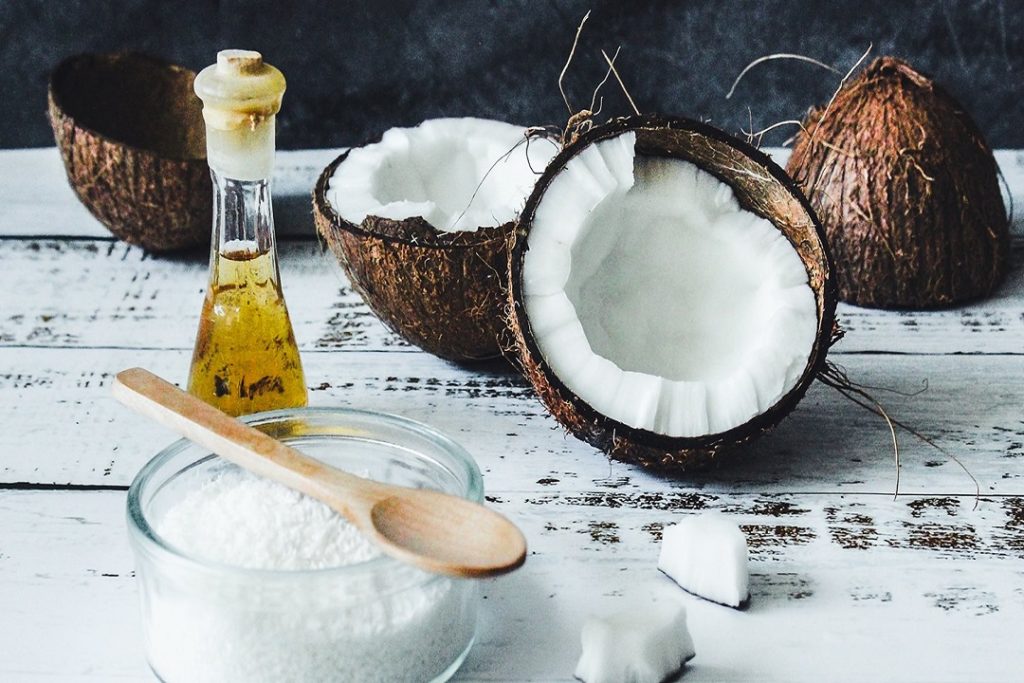Oftentimes old trends resurface as new ones, get hype, and then disappear once again. Just think of the diet trends you’ve heard of in your lifetime – all wavering between the right and wrong foods, often naming the same foods in both lists. Everything in moderation, seems to be the direction that over arcs all trends, but is that true in regards to oil pulling? Here’s what your dentist has to say about it, including how oil pulling got started and alternate solutions.
What is oil pulling?
Oil pulling is an ancient Ayurvedic process that has gained popularity mostly by social media and celebrities who shout their testimonials. Proponents of the practice state it helps with everything from cleaning and detoxing the mouth (pulling toxins, thus the name oil pulling), whitening teeth, curing bad breath, and reducing inflammation that leads to conditions such as eczema, arthritis, and gum disease.
The practice simply involves swishing one’s mouth with high quality oil for 20 minutes a day. Organic coconut, sunflower, or sesame oils are the most often recommended.
Does oil pulling work?
Just like any natural remedy, true scientific studies and results are hard to come by. Likewise, there are those who claim huge benefits while others see none, and those who experience negative effects. Natural remedies are popular with those who want a more earth-based approach to health and wellness, so let’s look at how and why some people claim it works.
Why it works for some…and doesn’t for others
Proponents of oil pulling claim it whitens teeth and reduces plaque. But, these same benefits could also be accomplished with chewing sugar-free gum, using mouthwash, or even just rinsing with water for 20 minutes each day. All options can work to increase saliva or dilute the plaque concentration in a way that doesn’t allow it to stick to teeth.
To realize the benefits, twenty minutes of oil swishing is what is recommended, but for most people this is very difficult to do. The oil nearly doubles, filling your mouth as saliva is produced during the swishing. When it is spit out, the consistency is just too unpleasant for most people to continue the habit. Swishing with an alcohol-free mouthwash, as recommended by the ADA, is much easier for most people, especially with a variety of flavors and strengths.
Is oil pulling the solution for a healthy smile?
While oil pulling may remove some plaque, it truly needs to be removed with pressure, such as that from a toothbrush, floss, and dental tools. More ancient than oil pulling is that of chewing on a twig! These days, twice a day brushing, once a day flossing and mouthwash use, and even chewing of sugar-free gum after meals is recommended between dental visits for optimum health.
Even with good home care, nothing can replace a dentist visit. Twice a year, a dentist should be seen to address any oral health care needs. X-rays give indications of potential problems, oral cancer screenings can be conducted, and issues with fillings, broken or loose teeth, jaw pain, and more can be addressed. ‘
If you want the benefits of a whiter smile, have concerns about bad breath or gingivitis, talk to your dentist about natural solutions that will better match your unique situation.
What is the American Dental Association’s stand on oil pulling?
To be clear, here are their exact words:
“Currently, there are no reliable scientific studies to show that oil pulling reduces cavities, whitens teeth or improves oral health and well-being. Based on the lack of scientific evidence, the American Dental Association does not recommend oil pulling as a dental hygiene practice. The ADA continues to recommend that to maintain good dental health you brush twice a day for two minutes with fluoride toothpaste and floss between your teeth once a day and don’t use tobacco.” Source: ADA Oil Pulling
We think that speaks for itself, but if you have more questions or concerns, speak to your dentist. He or she knows your mouth and your situation and can discuss options with you based on that information. In need of a new dentist? Find a dentist near you and schedule your next appointment.

